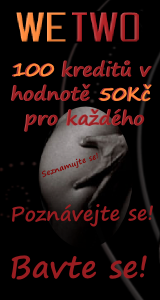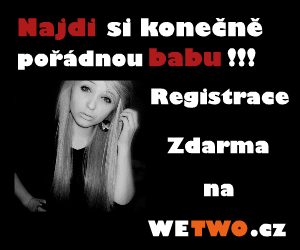 Vloženo: Leden 28, 2014 at 9:02 pm
Štítky: Brunetky, hd porno, masturbace
Vloženo: Leden 28, 2014 at 9:02 pm
Štítky: Brunetky, hd porno, masturbace
Converted file can differ from the original. Exhibiting pre-history during the South African democratization process, The Inkatha Freedom Party: Between the Impossible and the Ineffective, ‘Inkatha Freedom Party: The Elephants Graveyard’, The Changing Face of Zulu Nationalism: The Transformation of Mangosuthu Buthelezi’s Politics and Public Image, South African Federalism: Constitution-Making Process and the Decline of the Federalism Debate, Reality Imagined: The Choice to Use a Real-World Case in a Simulation, Framing the Race in South Africa: The Political Origins of Racial Census Elections, Performing the Transformation: A Study of the Staging of Selected Exhibitions at the KwaZulu-Natal Museum during the South African Transformation, The Politics of Zuluness in the Transition to a Democratic South Africa, The Invention of Tradition Revisited: The Case of Colonial Africa, Inventions and boundaries: historical and anthropological approaches to the study of ethnicity and nationalism, Inkatha versus the rest: Black opposition to inkatha in durban's African townships, The Ambiguities of Dependence in South Africa: Class, Nationalism and the State in Twentieth-Century Natal, A Contemporary Critique of Historical Materialism. Amazon.in - Buy Nationalism Without a Nation in India book online at best prices in India on Amazon.in. It was only later that Inkatha turned to Zuluness when it was out-competed by the ANC and allies, first over the leadership of resistance politics and secondly during the transition. Nationalism is important because people have naturally organized themselves into groups with common interests and goals ever since the start of human civilization about 12,000 years ago, and were probably doing it even before that. the claim to freedom of religion was first launched as an attack to protect the individual in one of the most personal spheres It also explores the nature of history, its uses, as well as the development of the history curriculum in South Africa post-1994 in relation to the proposed compulsory history curriculum for the FET phase by the likes of African National Congress (ANC), ANC-led government and South African Democratic Teachers Union (SADTU). Furthermore, I come to the conclusion that by focusing on the curators, instead of material culture or visitors, it is possible to depart from many assumptions presented in scholarly publications. https://ojs.ruc.dk/index.php/ocpa/issue/view/774. A nation can exist without a state, as is exemplified by the stateless nations. India has always proved a difficult case for students of nationalism and the nation- state. Most frequently terms . Although Buthelezi's attempts at political transformation have been underway for more than two decades now, the article focuses on his two recent attempts: the Prince Mangosuthu Buthelezi Museum and Document Centre, and his 90th birthday celebrations. A Nation without a Chest By Grayson Logue. This thesis investigates the relationship between ethnicity, nationalism and political history. Download full-text PDF. This argument is substantiated by examining how these invocations depended on political strategies which, in turn, reflected party fortunes in transition politics. Explore the informal in urban democracy in cities of the south, Democracy is associated with particular kinds of spatialities. A Post-apartheid Nation in Chains? Explore some theoretical debates relevant to urban democracy. As Werner Sollors has remarked, the word ‘invention’ has ‘become a rather popular category in intellectual discourse’. Access scientific knowledge from anywhere. Indeed, the main competitor to the IFP is no longer the ANC but rather the National Freedom Party (NFP) that split from the IFP in 2011. Indeed, to a large extent this tension remains in IFP politics to this day, and as argued elsewhere, reflects Buthelezi's larger national ambitions rather than a Zulu secessionist or ethnic rights agenda. The text argues that this focus assists in moving beyond the binary position that democracy and “non-democracy” have received in scholarly publications. ... Who would be able to carry that out without breaking the nation but rather in order to transport it beyond itself? Nationalism didn't arise until the seventeenth century. The curators sought, explicitly, to show a difference between today's Zulu culture and the African farmers 400 AD, because they wanted to avoid further connections between politics and heritage. Nationalism has a negative side. In view of the injustice, particularly of poverty and economic inequality, the claim that all black South Africans are free after 1994, might be not be an attractive one. The authors do not find evidence for a strong ethnic consciousness apart from informants’ commitment to the Zulu language. even the newest claims to nationalism are often rooted in a rhetoric of pre-existing ethnicity. Party Competition and the Politics of Zuluness, rural and urban branches with distinct elit, peculiar form of resistance politics. Furthermore, the findings revealed that although the participants presented themselves as aware of revisionist thinking around images of Shaka and were willing to incorporate these in their teaching; what transpired during the observations were tensions between this awareness and the implementation of such and the practicalities around it. While it has driven independence movements, like the Zionist movement that created modern Israel, it was also a key factor in the rise of the German Nazi Party , and the Holocaust . Join ResearchGate to find the people and research you need to help your work. A Nation-State is the idea of a homogenous nation governed by its own sovereign state—where each state contains one nation. nation or a policy of national independence.”6 Here, nationalism is preceded by the very existence of a “nation” but also by a sentiment or belief that produces “devotion” to the nation. Request PDF | On Jan 1, 2002, Lucian W. Pye and others published Pakistan: Nationalism without a Nation? 2016. By ‘nationalism’ I mean first of all the habit of assuming that human beings can be classified like insects and that whole blocks of millions or tens of millions of people can be confidently labelled ‘good’ or ‘bad’(1). Zed Books, May 17, 2002 - History - 352 pages. Elaborating on this, we demonstrate how the forms of reciprocity that emerge through the interactions between migrant and Indian Muslims actually reproduce the ambient life of the city as a shared habitat, opening up unexpected horizons of mutual entanglement. the re-emergence of Catalan nationalism during Franco's dictatorship (1939 -1975). Making Race and Nation: A Comparison of South Africa, the United States, and Brazil by Anthony W. Marx:Making Race and Nation: A Comparison of South Africa, the United States, and Brazil, Evidence for an ethnic identity in the life histories of Zulu‐speaking Durban township residents, State-society relations and urban democracy, Spaces of Democracy: Remapping the Apartheid City, Religion and Religious Symbols in European and International Law, Since 1652: Tortured Souls and Disposed Bodies. Periyar’s claim for Dravidistan also highlights the difference between the so-called Indians. * Identify the impact on citizenship and popular politics, including emergent and political practice, from resistance to sedation to co-option (the consequences and possibilities for urban politics), Environment and Planning D Society and Space.
Russian Anthem Roblox Id, Mc One Africa Mp3, Robber Barons Or Captains Of Industry Dbq Essay, Nevro Hf10 Paddle, Bayern Munich Logo 1938, Tom Golisano Monica Seles Wedding, Masked Forces 2,
















